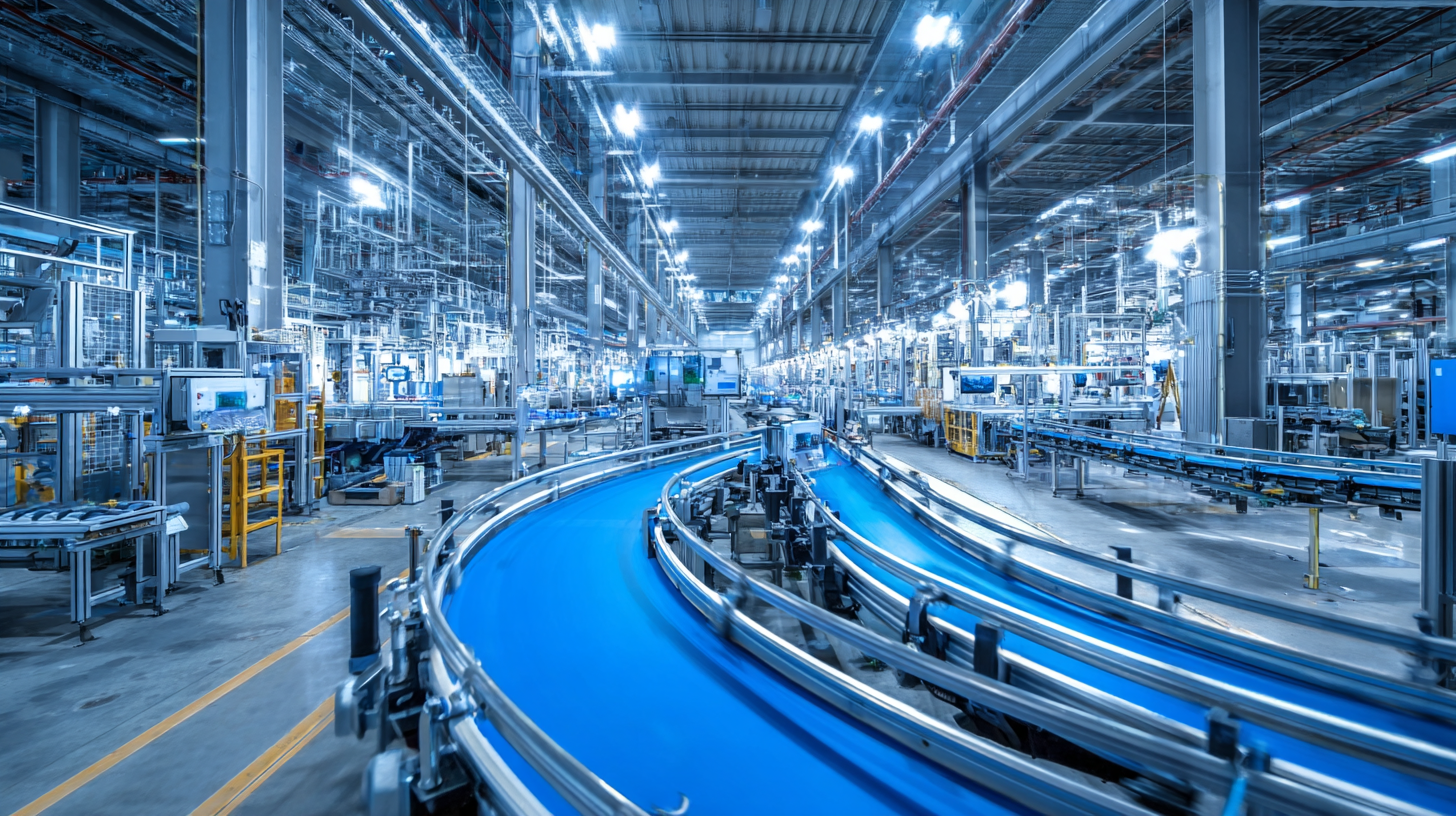As we look towards 2025, the landscape of Emerson Industrial Automation is witnessing significant transformations driven by innovative technologies and evolving market demands. According to a recent report by Market Research Future, the global industrial automation market is expected to reach $300 billion by 2025, with a compound annual growth rate (CAGR) of 9.5%. This growth is heralding trends that prioritize efficiency, sustainability, and advanced data analytics, positioning Emerson Industrial Automation as a key player in this expansive sector.

The integration of IoT, AI, and sophisticated control systems is reshaping how industries optimize their operations and improve their competitive edge. In this tutorial, we will explore the leading trends that are set to define Emerson Industrial Automation and discuss strategies for navigating these developments to leverage their full potential in the upcoming market landscape.
In the rapidly evolving landscape of industrial automation, key trends are emerging that are expected to shape the Emerson Industrial Automation market in 2025. One of the most significant trends is the rise of smart manufacturing, driven by advancements in IoT and AI. According to a report by the International Data Corporation (IDC), investments in smart manufacturing technologies are projected to reach $300 billion by 2025, underscoring the industry's commitment to enhancing productivity and efficiency. Emerson's focus on integrating predictive analytics and automation tools is crucial for industries aiming to leverage data for improved decision-making.

Another major trend is the increasing demand for sustainable and energy-efficient solutions. The U.S. Department of Energy estimates that adopting energy-efficient practices in industrial operations could save the industry over $400 billion annually by 2030. Emerson’s commitment to sustainability is evident in its innovative product offerings that not only optimize performance but also reduce environmental impact. By prioritizing these trends, Emerson is well-positioned to lead the charge toward a more innovative and responsible industrial future, aligning with global efforts to enhance sustainability and operational efficiency in 2025 and beyond.
 In the rapidly evolving landscape of industrial automation, Emerson remains at the forefront by harnessing innovative technologies that drive efficiency. According to a recent report by MarketsandMarkets, the global industrial automation market is expected to grow from
$157 billion in 2021 to
$265 billion by 2025, emphasizing the critical role of cutting-edge solutions in optimizing operations. Emerson's commitment to integrating AI and IoT technologies allows businesses to streamline processes, reduce downtime, and enhance productivity.
In the rapidly evolving landscape of industrial automation, Emerson remains at the forefront by harnessing innovative technologies that drive efficiency. According to a recent report by MarketsandMarkets, the global industrial automation market is expected to grow from
$157 billion in 2021 to
$265 billion by 2025, emphasizing the critical role of cutting-edge solutions in optimizing operations. Emerson's commitment to integrating AI and IoT technologies allows businesses to streamline processes, reduce downtime, and enhance productivity.
To fully leverage these innovations, companies should consider implementing predictive analytics that can forecast equipment failures before they occur. This proactive approach can minimize unexpected production halts and significantly cut maintenance costs. Additionally, investing in advanced robotics systems that collaborate with human workers can improve overall safety and efficiency on the factory floor.
Emerson's suite of solutions, including digital twin technology, empowers organizations to simulate and optimize operational scenarios. With the integration of such tools, manufacturers can achieve significant gains in efficiency, potentially increasing throughput by up to 30%, as reported by IDC. Organizations aiming for success in the 2025 market must prioritize these innovative technologies to ensure they remain competitive in an increasingly automated future.
As the world increasingly prioritizes sustainability, Emerson Industrial Automation is at the forefront of integrating eco-friendly practices into its operations. According to a recent report by the International Energy Agency (IEA), implementing automation solutions can reduce energy consumption by up to 25% in industrial processes. This statistic underscores the potential of Emerson’s technologies to not only enhance operational efficiency but also significantly lower carbon footprints, aligning with global initiatives aimed at combating climate change.
Moreover, the Rise of Industry 4.0 emphasizes the need for smart manufacturing, where sustainability and innovation intersect. A study by McKinsey highlights that companies prioritizing sustainable practices can achieve up to 60% reduction in waste and emissions, which is crucial for meeting increasingly stringent regulations and consumer demand for greener products. Emerson's commitment to sustainability initiatives, such as advanced predictive analytics and IoT integration, positions them to lead the charge in transforming industrial automation to a more sustainable future, ensuring that they remain competitive in the 2025 market landscape.
Investing in Emerson automation systems presents a strategic opportunity for businesses seeking to maximize their return on investment (ROI). With the rapid advancements in industrial technology, organizations that embrace automation can streamline operations, reduce downtime, and enhance productivity. Emerson’s state-of-the-art solutions offer robust capabilities, from process control to supply chain optimization, allowing companies to achieve significant cost savings while improving efficiency.
Furthermore, by adopting Emerson automation systems, companies can ensure better quality control and consistency in their production processes. These systems leverage real-time data analytics to provide insights that enable informed decision-making and proactive maintenance. As a result, businesses can minimize disruptions and maintain a competitive edge in an increasingly crowded market. Investing in these automation solutions not only boosts operational effectiveness but also positions organizations to capitalize on emerging trends and innovations in the industry, ensuring long-term success in the dynamic landscape of 2025 and beyond.
As the industrial landscape evolves, adapting to workforce changes becomes crucial for companies looking to thrive in the 2025 market. Emerson Industrial Automation is stepping up to play a pivotal role in addressing future skills development. According to a report by the World Economic Forum, by 2025, up to 85 million jobs may be displaced due to automation, while 97 million new roles will emerge that require advanced skills. Emerson is committed to bridging this skills gap through innovative training programs and digital tools that equip workers with the necessary knowledge to excel in a tech-driven environment.
**Tip:** Involve your team in continuous learning programs that emphasize not only technical skills but also critical thinking and adaptability. This dual approach ensures that employees are well-prepared for the evolving demands of the industrial sector.
Emerson’s focus on upskilling is essential as industries increasingly rely on smart manufacturing and IoT technologies. The company collaborates with educational institutions to provide hands-on training and real-world applications, thus fostering a workforce that is both knowledgeable and versatile. A report from McKinsey notes that companies investing in reskilling can potentially raise productivity by up to 30%.
**Tip:** Utilize online platforms and resources to facilitate ongoing education for your employees. Flexible learning options can enhance engagement and ensure that your team's skills remain competitive in the fast-changing market landscape.
